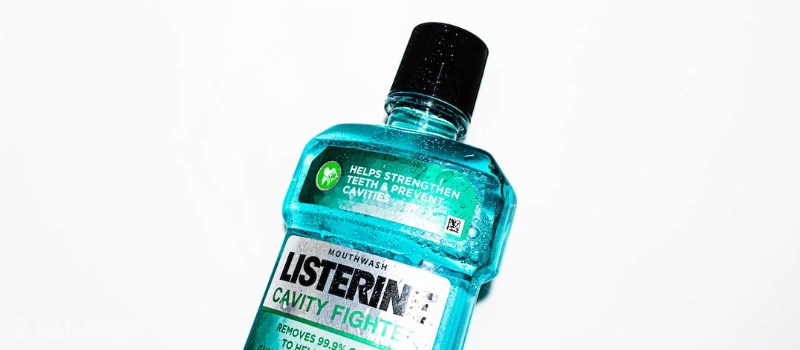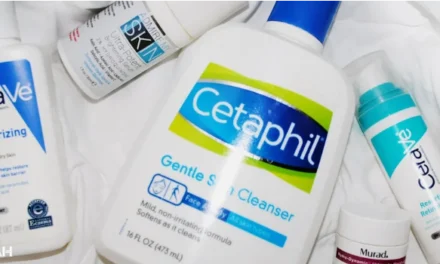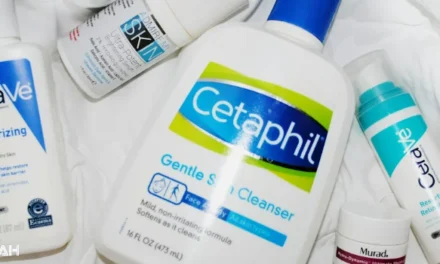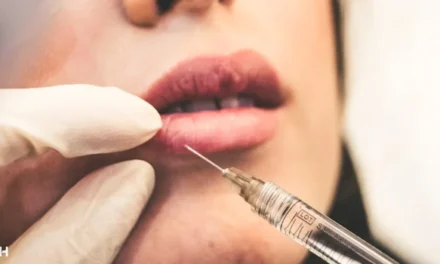Mouthwash is a popular oral hygiene product used by millions of people every day. However, for Muslims who follow a halal diet, ingredients like alcohol can raise concerns about whether common mouthwashes like Listerine are allowed under Islamic law.
This comprehensive guide examines all the evidence to answer the question: is Listerine mouthwash actually halal? You’ll also discover halal-friendly alternatives if you decide Listerine isn’t suitable for you.
Checking Listerine Ingredients for Halal Compliance
The first step in determining if Listerine is halal is looking at its ingredients. According to Islamic dietary guidelines from the Quran and Hadith, products must not contain:
- Alcohol – Forbidden due to intoxicating effects
- Pork byproducts – Avoidance of pork is explicitly stated
- Any intoxicating substances – Cloud judgement and rational thinking
Listerine contains 21.6% alcohol in most varieties, derived from GMO-free plants like corn and canola. Some specialized formulas like Listerine Zero contain no alcohol, but most mouthwashes do.
Under Islamic law, there is some debate over whether alcohol is permitted if used in tiny amounts for medical purposes and does not lead to intoxication. The visibility of intoxicating effects impacts permissibility as well. We’ll dive deeper into scholarly interpretation of this below.
Listerine Ingredient Halal Status At-a-Glance
| Ingredient | Halal Concerns? |
|---|---|
| Ethyl Alcohol (21.6%) | Usually avoided |
| Eucalyptol | None |
| Menthol | None |
| Methyl Salicylate | None |
| Thymol | None |
| Water | None |
| Phosphoric Acid | None |
| Poloxamer 407 | None |
As we can clearly see, the main potential issue is the high ethyl alcohol content used as an antiseptic in most Listerine products. All other ingredients are free of pork byproducts, intoxicating agents, and ethically concerning substances according to halal standards.
But the debate lies around whether the specific type and application of alcohol in Listerine should still be considered haram for Muslims.
Understanding Differences Between Haram and Halal Oral Care
To determine if a personal care product like Listerine is halal certified or not, we first need to understand what ingredients are declared haram (forbidden) under Islamic law.
Haram Substances According to the Quran:
- Alcoholic beverages that cause visible intoxication
- Pork and pork byproducts
- Carnivorous animals with fangs
- Food sacrificed to idols
The eminent Islamic scholar Imam Ibn Uthaymeen also forbade synthetic alcohol and any substance that causes a “dense cloud over the mind.” Thus, any intoxicant that alters sobriety should be avoided by devout Muslims.
This means prescription medications, recreational drugs, some natural herbals, and more may fall into the haram category too if misused or overindulged in.
General Principles of Halal Oral Care Products:
- No intoxicating forms of alcohol
- No pork enzymes, gelatins, glycerins
- Ethically and safely sourced ingredients
Now, Listerine does contain alcohol, usually derived from GMO-free corn, canola, or other grains. It is not swallowed in large volumes like wine or beer, but partially ingested orally.
The major lingering question is whether this negligible alcohol intake is permissible for preventative medical reasons or should be strictly forbidden to avoid accidental intoxication.
Prominent Islamic scholars and legal bodies have debated this topic extensively with dissenting views.
Can Any Variant Be Considered Halal? Expert Opinions from Muslim Authorities
Given the lack of consensus amongst Islamic experts on this topic, is it possible for standard Listerine formulas (which contain alcohol) to be classified as halal?
Arguments For Permissibility
- Alcohol serves an antiseptic medical and hygienic purpose
- Traces ingested orally in mouthwashes show no intoxicating effects
- Alcohol is sometimes derived from plants like dates or grapes making it less synthetically produced
These factors lead some more liberal scholars like Shaykh Musa Furber to carefully give exceptions allowing forms of alcohol in medicinal or health products.
Arguments Against Use
- The Prophet Muhammad (PBUH) clearly forbade all intoxicating drinks in multiple hadiths
- Most mouthwash alcohol today is synthetically manufactured, not fermented from grapes/dates
- Any substance that can intoxicate should be treated as haram, even in low doses
Conservative authorities like the South African Halal Authority prohibit any consumable alcohol entirely based on the potential for abuse or unintentional overindulgence.
So is there a definitive judgement on this issue? Unfortunately there is no consensus between the major halal certification boards.
Most experts advise avoiding alcohol whenever possible, even in trace medical amounts. Based on this, standard Listerine is not considered halal by most Islamic authorities.
However, alcohol-free varieties like Listerine Zero may be halal-compliant if they contain no questionable ingredients. Ultimately each Muslim must consult their religious advisor if still unsure.
Positions of Leading Muslim Authorities on Listerine Ingredients
| Scholar/Organization | Judgment | Basis for Ruling |
| Imam Ibn Uthaymeen | Alcohol is prohibited | Impure intoxicating effects |
| Imam As-Sayyid Sabiq | Should always be avoided | Ingestion forbidden by hadith |
| Darul Iftaa | Not halal-compliant | Synthetic alcohol sources |
| Shaykh Musa Furber | Possibly permissible | Negligible ingestion |
| Halal Council of Australia | Alcohol prohibited | Intoxication risk |
As demonstrated, there are fact-based cases to be made on both sides of this issue. The final decision depends greatly on individual interpretation of Quranic principles and medical need.
Good-for-You, Halal-Friendly Alternatives to Listerine Products
If you decide to avoid Listerine due to the disputed alcohol content, many natural mouthwash brands serve as excellent alternatives:
Cleure: Certified halal & vegan formula
Desert Essence: Made with tea tree oil
Jason Healthy Mouth: Soothing aloe vera ingredients
You can even make homemade mouthwashes with common pantry ingredients:
Mix 3 tablespoons baking soda + purified water + 5 drops peppermint essential oil. Shake before use.
Similarly, an alcohol-free lemon + eucalyptus + mint infusion works too. Mix antiseptic essential oils into hot water and cool before swishing.
When purchasing commercial brands, always examine ingredient lists and contact manufacturers with any sourcing questions. Reputable companies will happily provide reports on their quality control and halal compliance processes.
And as mentioned earlier, run any concerns past your local Imam or halal certification authority beforehand whenever unsure.
Frequently Asked Questions: Is Listerine Halal?
Listerine mouthwash contains alcohol, but it is derived from synthetic sources and is not intoxicating. Majority of the scholars consider it permissible to use as it is not derived from grapes or dates. However, some may prefer to use a mouthwash that does not contain alcohol.
What is the ruling on using mouthwash with alcohol in Islam?
The ruling on using mouthwash with alcohol in Islam depends on the source of alcohol. If the alcohol is derived from synthetic sources and is not intoxicating, then it is considered permissible to use. However, if the alcohol is derived from grapes or dates and is intoxicating, then it is not permissible to use.
Can I use Listerine mouthwash that contains alcohol?
Listerine mouthwash contains alcohol, but it is derived from synthetic sources and is not intoxicating. It is considered permissible to use by the majority of the scholars. However, some individuals may choose to use a mouthwash that does not contain alcohol.
What is the permissible alternative to Listerine if I prefer not to use mouthwash with alcohol?
If you prefer not to use mouthwash with alcohol, you can opt for alcohol-free mouthwashes available in the market. These mouthwashes are formulated to provide similar oral hygiene benefits without the presence of alcohol.
Is alcohol in Listerine halal?
The alcohol in Listerine is derived from synthetic sources and is not intoxicating. Therefore, it is considered permissible in Islam, as it is not derived from grapes or dates. However, some individuals may choose to avoid using mouthwash that contains alcohol.
What are the ingredients in Listerine mouthwash?
Listerine mouthwash contains a combination of active ingredients such as eucalyptol, menthol, methyl salicylate, and thymol. It also includes alcohol, which is derived from synthetic sources and is not intoxicating.
Does using Listerine mouthwash that contains alcohol have any medicinal effectiveness?
Listerine mouthwash is effective in reducing plaque and gingivitis when used as directed. The presence of alcohol in Listerine is intended to serve as an antiseptic to help kill oral bacteria and provide a deeper clean for oral hygiene.
Why is alcohol considered impure in Islam, but Listerine with synthetic alcohol is permissible?
In Islam, alcohol derived from grapes or dates is considered impure and intoxicate, and its consumption is forbidden. However, synthetic alcohol, like the one used in Listerine, does not have intoxicating effects and is not derived from forbidden sources, making it permissible for use in oral hygiene products.
What is the ruling on using mouthwash with alcoholic ingredients according to Islamic teachings?
Islamic teachings consider the use of mouthwash with alcoholic ingredients permissible if the alcohol is derived from synthetic sources and is not intoxicating. It is important to ensure that the ingredients do not contain alcohol derived from grapes or dates, as that would be forbidden in Islam.
Is it permissible to use cookies after using Listerine mouthwash containing synthetic alcohol?
Yes, it is permissible to use cookies or consume food and beverages after using Listerine mouthwash containing synthetic alcohol. The alcohol used in Listerine is not intoxicating, and it does not pose a barrier to consuming food or using other products after its use.
Clearing Up the Confusion: Is Listerine Ultimately Halal?
Despite all the discussion on this topic now, there unfortunately exists no unanimous consensus amongst Islamic scholars on whether common mouthwashes containing alcohol like Listerine are definitively 100% halal certified.
This ongoing disagreement stems from:
✔️ Alcohol’s historical prohibition as an intoxicant
✔️ But Listerine’s ingredients don’t lead to drunkenness
❌ However, many scholars forbid “unnatural” alcohol creation methods
✔️ Listerine does serve antiseptic medical and oral health purposes
The subtle distinction lies between alcohol made for recreational drinking versus clinical applications. Most early Islamic rulings were based on wine or beer ingestion, not modern mouthwash products which did not exist at the time.
So ultimately, Listerine’s permissibility depends largely on personal interpretation of text, individual alcohol tolerance, accessibility to alternatives, and the advice of one’s trusted religious leader.
Many halal authorities declare that since alcohol’s original prohibition was based on observable intoxication, there could be room for exception if:
- The alcohol is sufficiently purified and diluted
- Originates from lawful plant sources like dates or grapes
- Contains a bittering agent to prevent recreational drinking
However, conservative scholars rebut that Allah or the Prophet Muhammad (PBUH) never stated conditional allowances for alcohol based on concentration, usage or ingestion volume. It was blanket categorized as unlawful, impure and abhorrent.
For them, the Quranic injunction holds that even trace exposure to this intoxicant leads down an unrighteous path. Thus, any product containing or processed with alcohol cannot ever be truly halal.
Without definitive judgement from globally recognized Islamic institutions, individual Muslims must use discretion about this product after studying arguments from both permissive and prohibitive perspectives. When in doubt, seek alternative options containing no alcohol or questionable ingredients.
I hope this extensive guide has thoroughly presented evidence on all sides of the complex debate around Listerine’s halal status. Please let me know if you need any clarification or have suggestions to include additional info!





